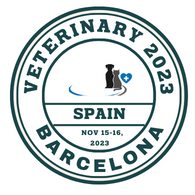Animal Physiology
Veterinary Care and management are usually led by a veterinary physician (usually called a veterinarian, veterinary surgeon or "vet" - doctor of veterinary medicine or veterinary medical doctor). This role is the equivalent of a physician or surgeon (medical doctor) in human medicine, and involves postgraduate study and qualification.
In many countries, the local nomenclature for a vet is a protected term, meaning that people without the prerequisite qualifications and/or registration are not able to use the title, and in many cases, the activities that may be undertaken by a vet (such as animal treatment or surgery) are restricted only to those people who are registered as vet. For instance, in the United Kingdom, as in other jurisdictions, animal treatment may be performed only by registered vets (with a few designated exceptions, such as Para veterinary workers), calling oneself a vet without being registered or performing any treatment is illegal.
Related Conference of Animal Physiology
Animal Physiology Conference Speakers
Recommended Sessions
- Animal Structure & Function
- Animal Vaccines
- Emergency and Critical Care
- Internal Medicine
- Anesthesia and Analgesia
- Animal Dermatology
- Animal Genetics
- Animal Microbiology
- Animal Physiology
- Animal Reproduction
- Animal Welfare
- Behavioral Medicine
- Clinical Pharmacology
- Environmental Threats
- Human-Animal Bond
- Layer Poultry Farming
- Small Animal Medicine and Surgery
- Veterinary and Animal Science
- Veterinary and Social Science Research
- Veterinary Dentistry
- Veterinary Parasitology
- Veterinary Telemedicine
- Wildlife and Ecosystem Health
- Zoonotic & Infectious Diseases
Related Journals
Are you interested in
- Animal Nutrition & Welfare - Veterinary Summit 2026 (Japan)
- Animal Nutrition, Welfare & Ethics - Veterinary Summit 2026 (Japan)
- Antimicrobial Resistance & Global Biosecurity - Veterinary Summit 2026 (Japan)
- Companion Animal Medicine & Surgery - Veterinary Summit 2026 (Japan)
- Livestock Health & Production Management - Veterinary Summit 2026 (Japan)
- Veterinary Biotechnology & AI in Animal Health - Veterinary Summit 2026 (Japan)
- Wildlife, Aquatic & Exotic Animal Medicine - Veterinary Summit 2026 (Japan)
- Young Researchers & Innovation Forum - Veterinary Summit 2026 (Japan)
- Young Veterinarians & Research Innovation Forum - Veterinary Summit 2026 (Japan)
- Zoonotic Diseases & One Health - Veterinary Summit 2026 (Japan)

